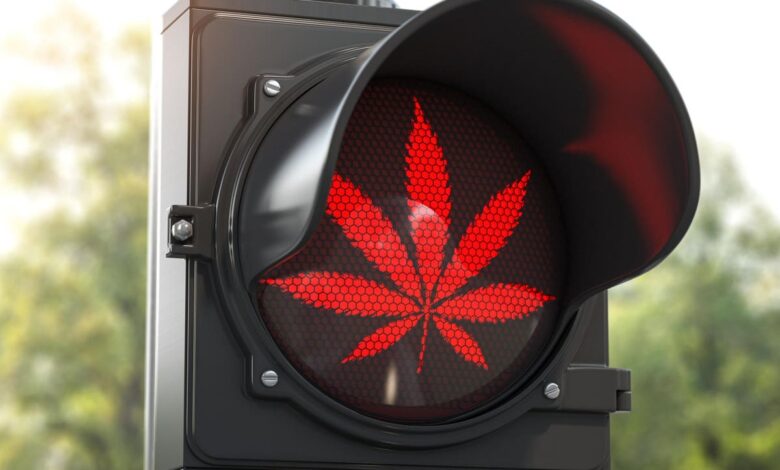Proposed Massachusetts Ballot Measures Would Recriminalize Weed Sales

📝 usncan Note: Proposed Massachusetts Ballot Measures Would Recriminalize Weed Sales
Disclaimer: This content has been prepared based on currently trending topics to increase your awareness.
Proposed ballot measure in Massachusetts would repeal the state’s 2016 legalization of recreational marijuana sales while retaining the legality of possession of small amounts of cannabis for adults.
getty
Two proposed ballot measure in Massachusetts would end legal sales of recreational marijuana, despite the widespread popularity of regulated adult-use cannabis in the Bay State. If passed, the ballot measures would prohibit sales of recreational weed in Massachusetts while retaining regulated sales of medical cannabis.
The two similar ballot proposal were filed by Caroline Cunningham, who campaigned against a proposal to legalize psychedelics in Massachusetts, according to a report from online cannabis news outlet Marijuana Moment. The psychedelics initiative was opposed by nearly 57% of voters in the November general election last year.
Proposals Outlaw Weed Sales, But Not Possession Of Small Amounts Of Pot
Under both proposed ballot measures, titled “An Act to Restore A Sensible Marijuana Policy,” the possession of up to one ounce of marijuana including up to five grams of cannabis concentrates would continue to be legal for adults aged 21 and older. Adults would also be permitted to gift cannabis to other adults without compensation. Possession of between one ounce and two ounces of weed would be decriminalized, although offenders would be subject to civil fines of up to $100 for the infraction.
The measures would repeal sections of Massachusetts’ cannabis legalization law, which was approved by nearly 54% of voters in 2016, that authorize recreational cannabis retailers. The proposals would also repeal access to regulated cannabis products by adults and provisions that legalize the home cultivation of marijuana.
The two proposed ballot measures differ only slightly, with one setting potency limits on medical cannabis. If that version is approved, state regulators would be required to limit the potency of marijuana flower to 30% THC, while cannabis concentrates would be capped at 60%. Concentrates with more than 5mg THC per metered dose would also be banned. Concentrate products that “fail to clearly provide metered, or otherwise measured, standard delivered servings” of 5 mg THC would also be prohibited, as would products that contain more than 20 5mg doses.
Massachusetts Recriminalization Initiatives Face Hurdles To Appear On Ballot
The two ballot proposals face a long road to approval in next year’s general election. The petitions for the initiative must first pass muster with the state attorney general’s office to ensure they meet constitutional requirements, with a decision due on September 3.
If the initiative petitions are approved, backers would be required to gather at least 75,574 signatures from registered voters to file with the Secretary of the Commonwealth by December 3, according to a report from the Telegram & Gazette.
If enough verified signatures are submitted, the proposals will be sent to the Massachusetts state legislature for consideration. If the legislature declines to do approve the initiatives, the supporters of the proposal would be given until July 1, 2026, to collect an additional 12,429 signatures to place the proposal on the ballot for next year’s general election. The initiatives would then need the approval of a majority of voters to become law.
The proposed ballot measures come despite the broad popularity of marijuana legalization in Massachusetts.
getty
Massachusetts Cannabis Regulator Faces Challenges
The proposed ballot measures come as the Massachusetts Cannabis Control Commission struggles to effectively regulate that state’s cannabis industry and protect public health. Just last week, the agency issued a public health and safety advisory announcing that more than 500 different products that had already entered the market were contaminated or potentially contaminated with mold or yeast.
Steve Reilly, head of government relations at Massachusetts-based licensed cannabis multistate operator Insa, says that problems with the state’s cannabis regulator are not sufficient grounds to scrap recreational cannabis legalization.
“The voters in Massachusetts have already made their decision clear when choosing to legalize adult-use cannabis,” Reilly writes in an emailed statement. “It is important not to conflate the shortcomings of the Cannabis Control Commission with the fundamental merits of the program itself. The existence of regulatory challenges does not mean the program is flawed in principle; it means oversight must improve.
“The ballot questions propose to effectively legalize cannabis through illegal operators while shutting down the legal framework in place. Elected representatives on Beacon Hill are actively working to address industry-related issues and strengthen the system,” he continues. “The solution is not to abandon a voter-approved program simply because regulators have fallen short, it is to ensure that those tasked with oversight are held accountable and that reforms are implemented to make the industry fair, transparent, and effective.”
Nearly Two-Thirds Of Massachusetts Residents Support Weed Legalization
The proposed ballot measures will have to change the minds of voters to be successful at the ballot box. In April 2024, a survey from MassINC Polling Group found that 65% of Massachusetts residents think that legalizing marijuana in the state was the right decision.




